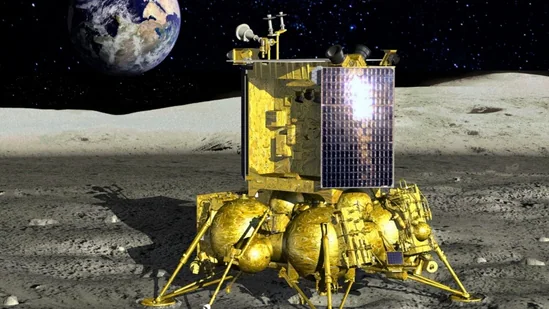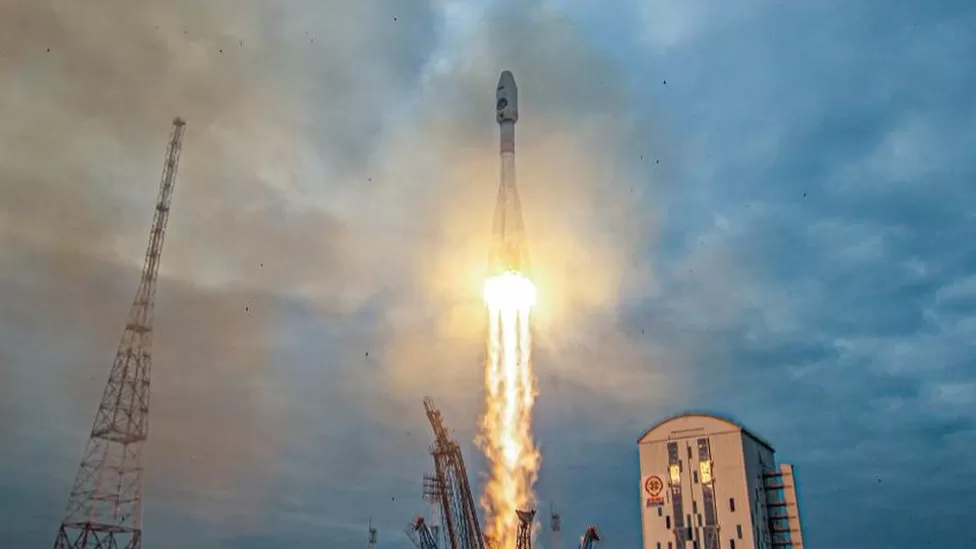In a disheartening turn of events, Russia’s ambitious Luna-25 spacecraft met an unfortunate fate as it crashed into the Moon, spiraling out of control. This incident dealt a significant blow to Russia’s esteemed space program, which had its sights set on achieving a historic milestone – landing the first spacecraft on the enigmatic south pole of the Moon.
The Icarus Journey: Luna-25 and Tragic Plunge
The Luna-25 spacecraft embarked on its voyage on August 11, 2022, launching from the prestigious Vostochny Cosmodrome in Russia. Its trajectory seemed promising, successfully entering the lunar orbit on August 16. However, the tables turned as Luna-25 spiraled into an uncontrolled spin, signaling the ominous beginning of its demise. Russia’s venerable space agency, Roscosmos, was faced with the heart-wrenching loss as they lost all communication with the spacecraft on August 20.
Preliminary investigations are pointing towards a propulsion system glitch as the cause behind this catastrophic crash. In response, Roscosmos has announced the establishment of a specialized commission, dedicated to unraveling the intricacies surrounding the ill-fated journey of Luna-25.

Russia’s Lunar Aspirations, Luna-25, Take a Hit
The crash of Luna-25 reverberates as a resounding setback for Russia’s flourishing space program. The nation has been fervently striving to keep pace with its global counterparts in the realm of space exploration. Yet, the Luna-25 crash casts a shadow over these efforts, underscoring the magnitude of the challenges faced by Russia in this high-stakes endeavor.
The mission of Luna-25 extended beyond mere lunar exploration; it bore the audacious ambition of etching history by becoming the inaugural spacecraft to grace the untouched landscapes of the Moon’s south pole. This region, cloaked in mystery, remains largely uncharted, offering the tantalizing possibility of harboring water ice beneath its surface – a potential game-changer in humanity’s quest for extraterrestrial resources.
A Triumph for India: The Changing Landscape of Lunar Exploration
As Luna-25 met its tragic end, the mantle of lunar achievement shifted continents. With India’s Chandrayaan-3 spacecraft poised for imminent landing, the country is poised to etch its name in the annals of lunar history. India’s success in this endeavor would not only mark its technological prowess but also stand as a testament to the dynamic and ever-evolving landscape of space exploration.
A Resilient Comeback: Russia’s Continuing Journey
While Luna-25’s crash is undoubtedly a significant setback for Russia’s space program, it is crucial to recognize that it does not spell doom for the nation’s aspirations. Russia boasts a storied history of space accomplishments, a testament to its scientific prowess and unwavering dedication. In light of this, it is reasonable to expect that Russia will rally its efforts and emerge stronger from this setback, propelled by a resilient spirit.
A Glimpse into the Future: Navigating the Space Race
Luna-25’s tragic end raises pertinent questions about Russia’s standing in the race to space exploration dominance. As the space race becomes increasingly competitive and intricate, Russia faces the formidable task of upholding its position on the global stage. Sustaining this momentum necessitates substantial investments in its space program, further fueling scientific advancements and fortifying the nation’s reputation as a trailblazer in space.
The story of Luna-25 serves as a poignant reminder that the journey of space exploration is fraught with challenges and uncertainties. Yet, these setbacks, while disheartening, also illuminate the indomitable spirit of human exploration. As the world watches the ever-evolving narrative of lunar exploration unfold, the legacy of Luna-25 will continue to inspire future endeavors, propelling us towards the boundless frontiers of the cosmos.



